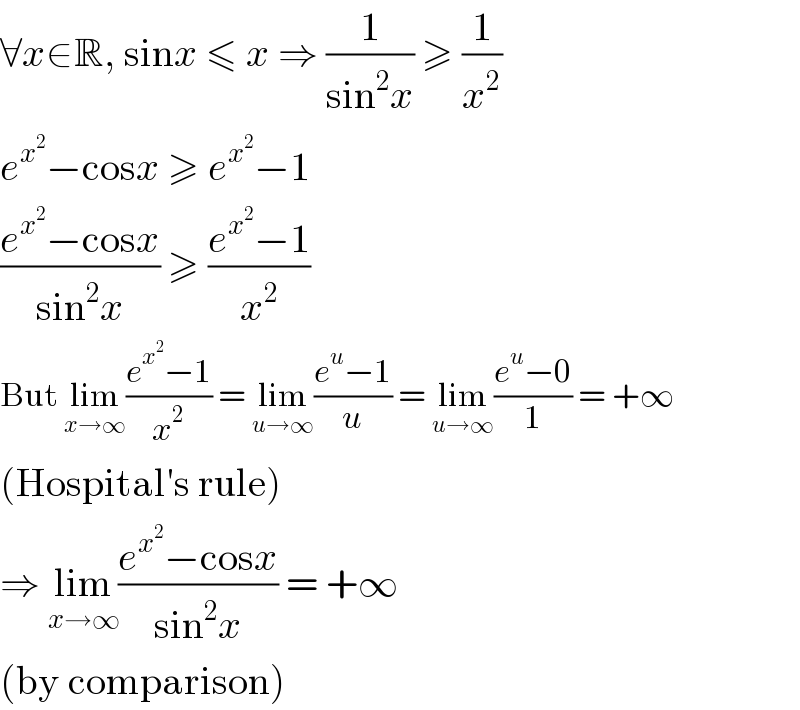
Question and Answers Forum
Question Number 117416 by Lordose last updated on 11/Oct/20

Answered by Olaf last updated on 11/Oct/20

Commented by Lordose last updated on 11/Oct/20

Commented by MJS_new last updated on 11/Oct/20

Commented by Olaf last updated on 11/Oct/20

Commented by Olaf last updated on 11/Oct/20

Answered by MJS_new last updated on 11/Oct/20

Answered by Bird last updated on 12/Oct/20

